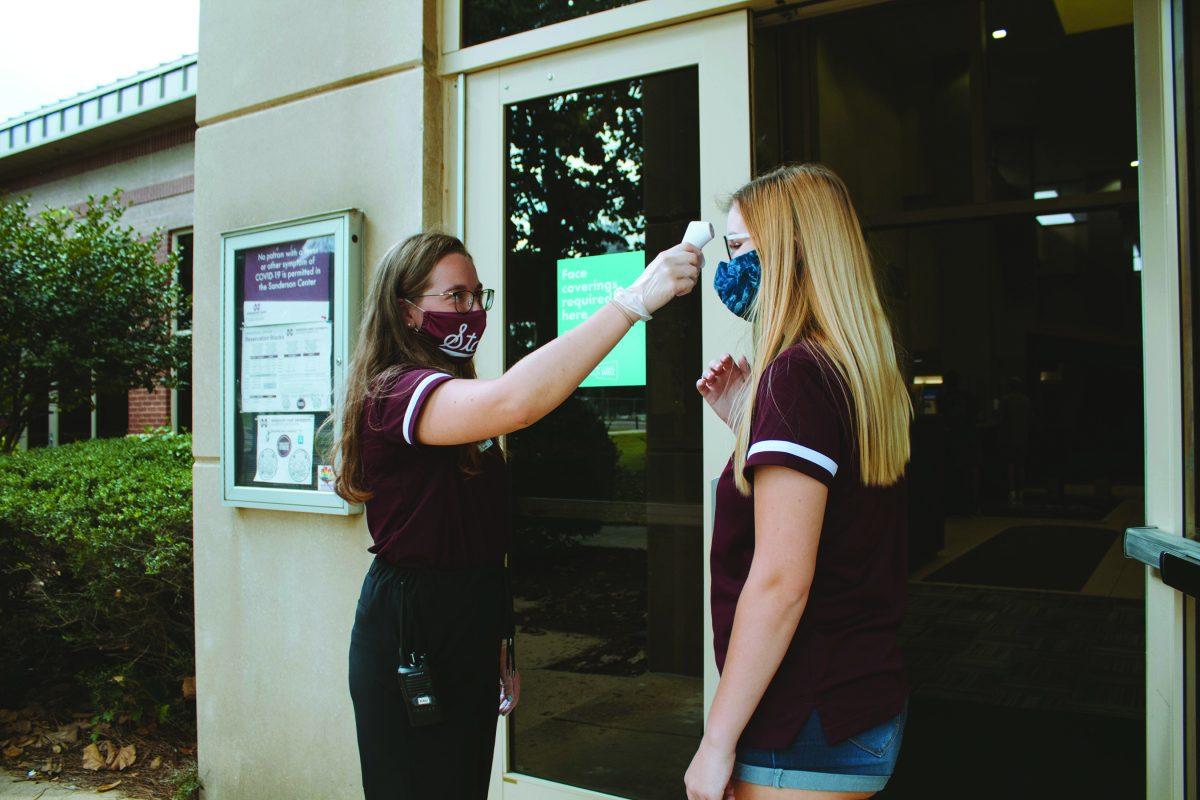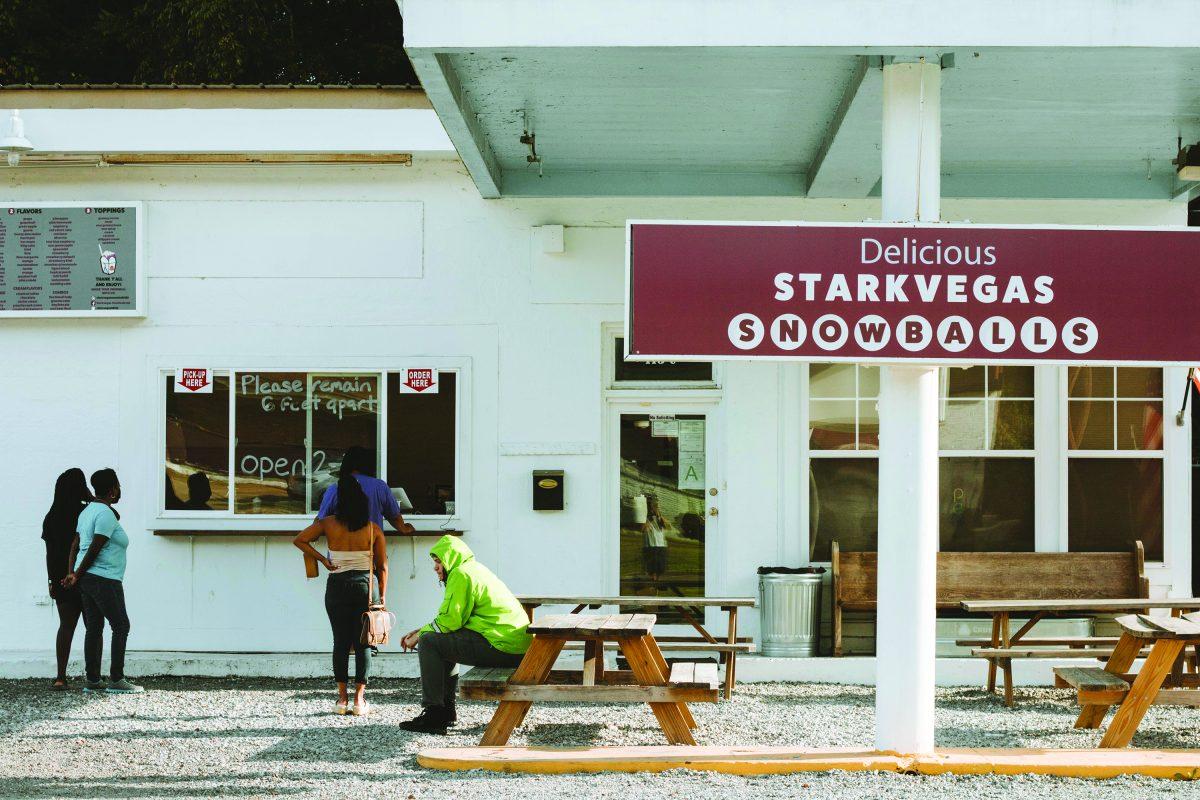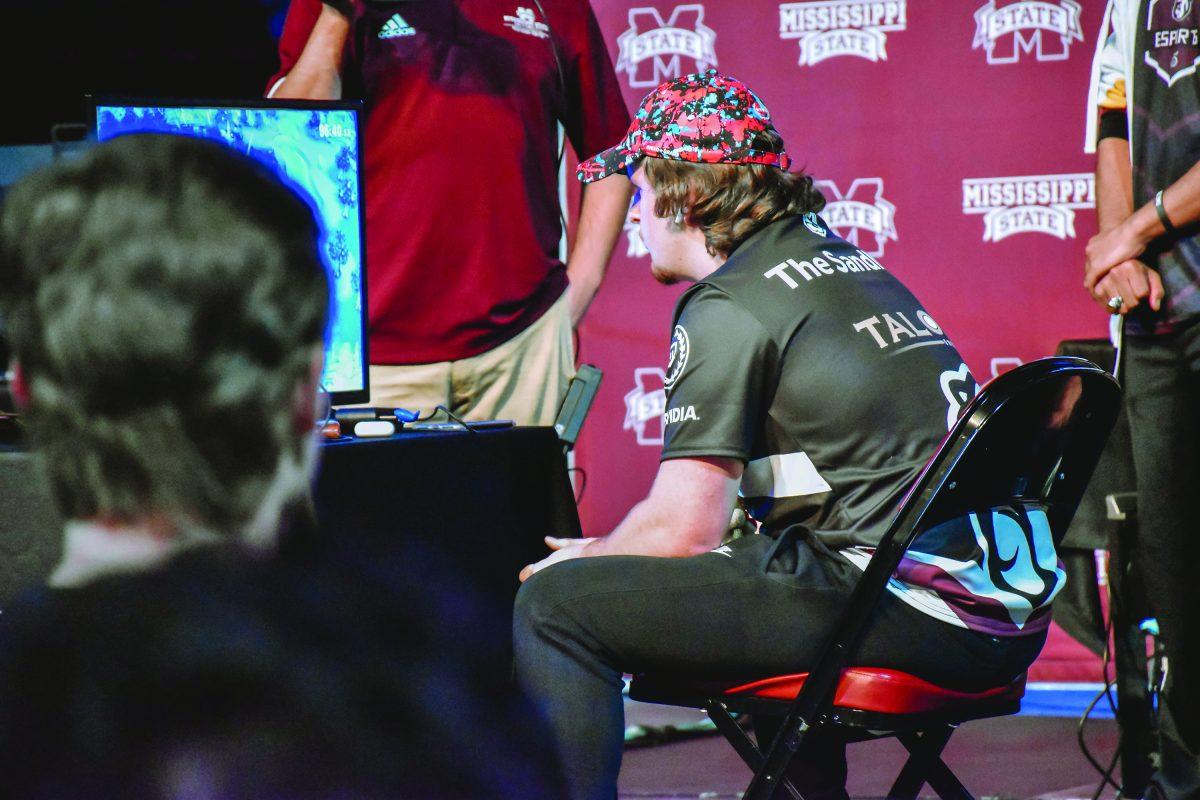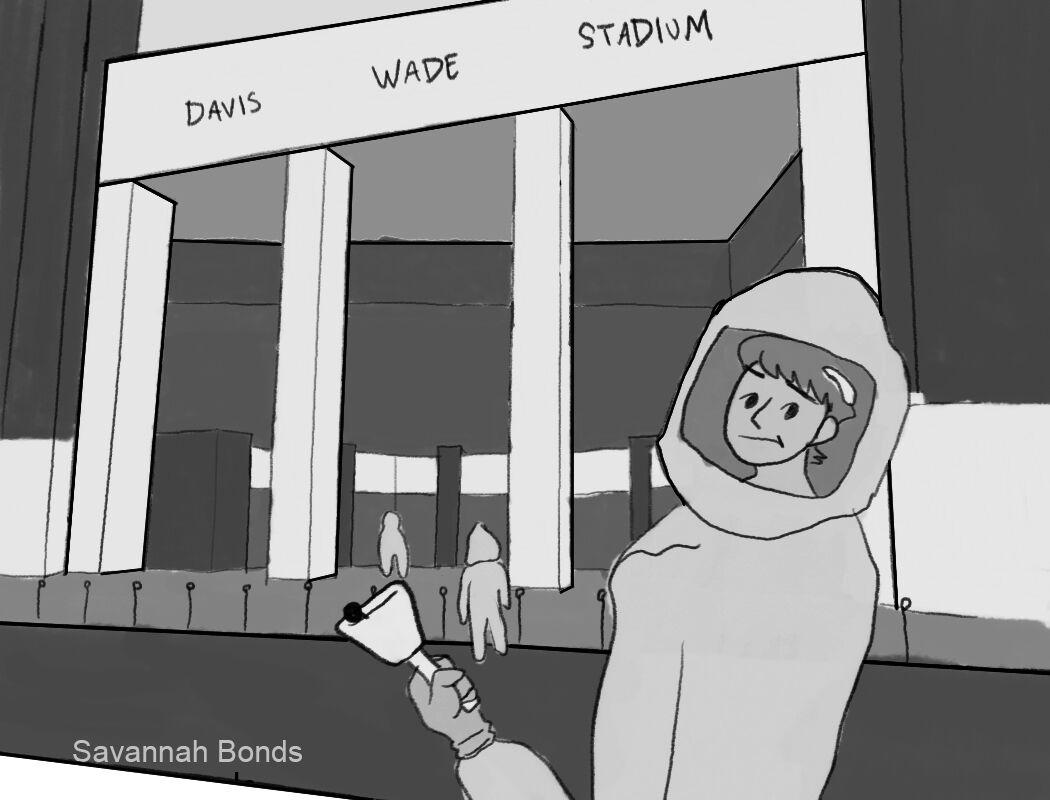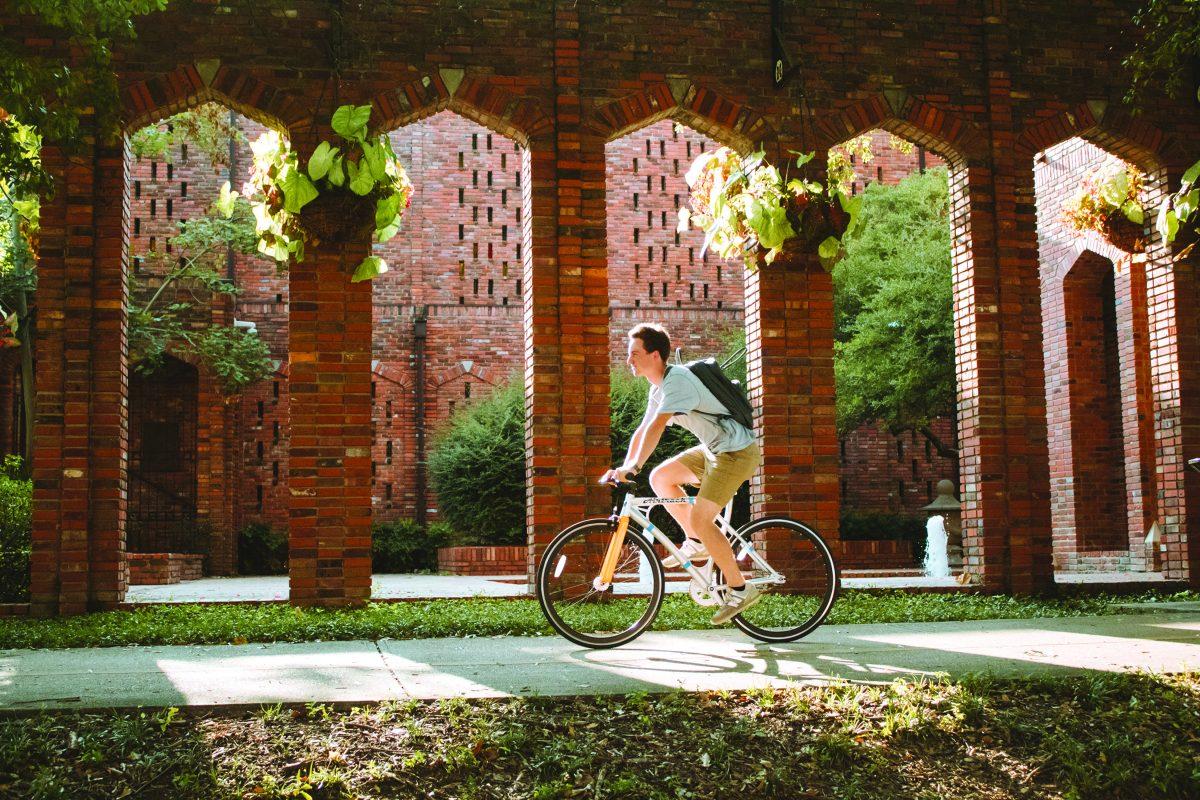When students returned to campus at the commencement of the fall 2021 semester, COVID-19 cases heavily increased in Mississippi, according to the Mississippi State Department of Health. However, due to an increase in vaccination rates among Mississippians, case numbers are slowly starting to level off.
Mississippi State University continues to encourage preventative measures against COVID-19 by offering vaccines to all students, faculty and staff, requiring masks indoors throughout campus and promoting personal hygiene and social distancing.
Jeremy Baham, assistant vice president for Student Affairs, has been working with organizations across campus to promote student health and well-being during the pandemic.
“Our Department of Health Promotion and Wellness spends a lot of time talking with folks about the importance of wearing a mask, the importance of being vaccinated and how those things can help the community get through this,” Baham said. “Our ultimate goal is to help students lead healthy lives and make healthy decisions, not just while they’re here, but to learn how to do that and take that wherever they go after they graduate.”
Baham said MSU’s efforts to promote a healthy campus include making preventative measures accessible to the entire MSU community. For example, the university provides face masks and makeshift “clinics” for students to receive the COVID-19 vaccine across the university.
“We are doing vaccinations in the health center, as well as doing pop-up clinics all over campus, where you can walk in without an appointment and sign up to get vaccinated that same day,” Baham said. “Being vaccinated greatly reduces the chance of being sent to the hospital.”
As universal research shows increased infection rates of the COVID-19 Delta variant in younger generations, taking preventative actions against the virus have become even more important for students’ well-being, Baham said. Beyond self-defense against COVID-19, Baham encourages students to take the initiative to get vaccinated to protect the community and set the university up for the best possible semester.
“I don’t know that anybody can give a good answer about what’s going to happen two weeks from now or a month from now,” Baham said about the plans for the upcoming semester. “It’s not normal. We’re not trying to have a normal year. What we are trying to do is provide the best experience for students in a safe environment.”
Jonah Neville, an MSU health and wellness educator, works with the Department of Health Promotion and Wellness on campus to educate students about navigating campus life safely during a pandemic. He explained that research shows vaccinated people recover more quickly from COVID-19 than unvaccinated people.
“We do have a good fortified first line of defense,” Neville said regarding the increased availability of vaccines for the fall 2021 semester. “The promising thing is that in vaccinated individuals, the viral load seems to dissipate much more quickly than it does in unvaccinated individuals, which leads to less chance of spread and less likelihood of infection.”
Although Neville started his work in the Department of Health Promotion and Wellness overseeing the alcohol and drug program for MSU, his focus moved to COVID-19 education and research as the need for it increased. Neville has been working with students and organizations to help them learn about COVID-19 and teaching them where to receive COVID-19 updates from reliable sources.
“You can see the trials and all the vaccine information,” Neville said. “The CDC always has great information, as well as the John Hopkins School of Public Health and the National Institute of Health.”
Furthermore, the health and wellness educator noted COVID-19 cases in Mississippi becoming more level in contrast to national trends showing increasing infection rates.
“Cases nationwide are trending upward. In the state, they were trending upward, but now they are starting to somewhat level off, which is encouraging. That could be attributed to the fact that Mississippi has seen a nice boost in vaccinations in the past two or three weeks, which falls into the time period in which vaccinations start being really effective,” Neville said. “Stay diligent. We are inching towards the finish line, hopefully, but we are not out of the woods yet.”
Additionally, MSU students have started new leadership roles to educate students about COVID-19 and the vaccine. The Vaccine Ambassadors are a Student Affairs organization trained to assist students in assessing the options and precautions they can take during the pandemic.
Ashlynn McCain, a senior communication and psychology major, is one of the Vaccine Ambassadors on campus who helps educate student organizations, assist health center employees in vaccine distribution and promote general health and wellness on campus.
“I see the Vaccine Ambassadors as an introduction to a book on COVID-19 vaccines. We are giving the very basic information, such as how to get a vaccine, what vaccines are available on campus and answers to questions on their safety and efficacy,” McCain said. “One of our main goals is to try to encourage vaccination.”
McCain said her inspiration to join Vaccine Ambassadors was the safety of others and a desire to provide the best possible college experience for MSU students.
“My biggest fear when the pandemic started wasn’t really for myself. It was for the people I was around,” McCain said. “One of the most patriotic things you can do — patriotic meaning good for yourself and for your community — is to get the shot because, at least to me, it said, ‘I care.’”
According to McCain, the objective of the Vaccine Ambassadors goes beyond presenting information about the pandemic and encouraging the COVID-19 vaccine. The Vaccine Ambassadors also hope to promote health and wellness by listening to students, especially during times of stress and confusion.
“Something that is very important to me is to make people feel heard, and I feel like a lot of people, vaccinated and unvaccinated, don’t feel heard. They hear so much misinformation, so I just want to provide a safe space for them,” McCain said. “Not only are we here to give information, but we are here to take in that information because we want to help students in the best way that we can.”
McCain said one of the most important measures students can take to slow the spread of COVID-19 is to stay informed. McCain offered sources for students who are questioning their next move to fight the pandemic.
“When it comes to more in-depth stuff — ‘What is a viral load,’ ‘How is the Delta variant affecting younger people versus older people’ — we refer people to the health center or the COVID hotline. They are the ones that have been researching this, and they’re the ones who have been briefed by the state, so we want to make sure that the most qualified and knowledgeable people are the ones answering those questions.”
The FDA-approved Pfizer vaccine is available on campus to all students, faculty and staff, and the Johnson & Johnson vaccine is available upon request. To schedule an appointment at the Longest Student Health Center, call 662-325-7535. COVID-19 testing is available by appointment by calling the COVID-19 hotline at 662-325-2055. Students, faculty and staff can enter multiple prize drawings if they are vaccinated by submitting their vaccine card on Banner.
Administrators, students promote vaccine awareness on campus
0
Donate to The Reflector
Your donation will support the student journalists of Mississippi State University. Your contribution will allow us to purchase equipment and cover our annual website hosting costs.
More to Discover






